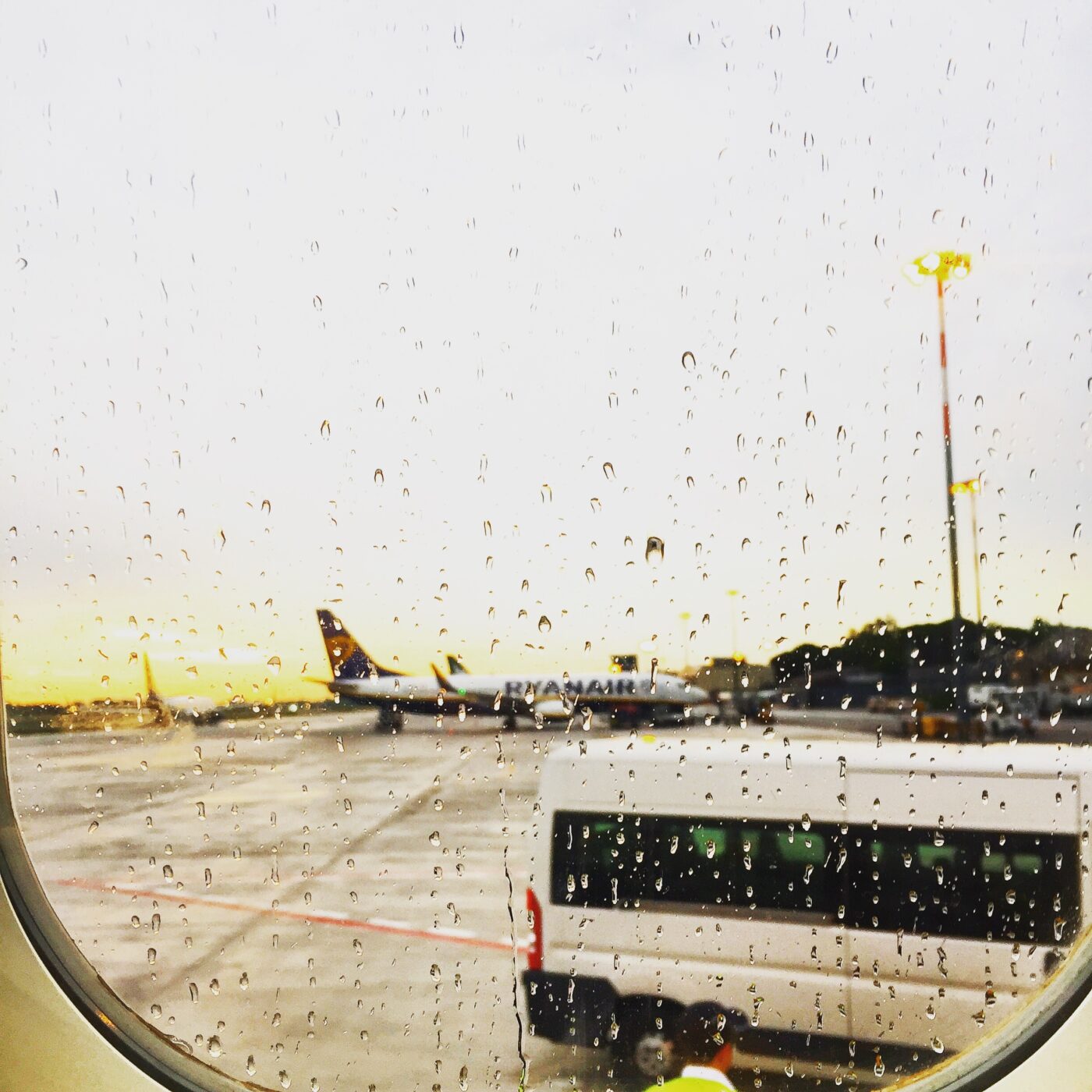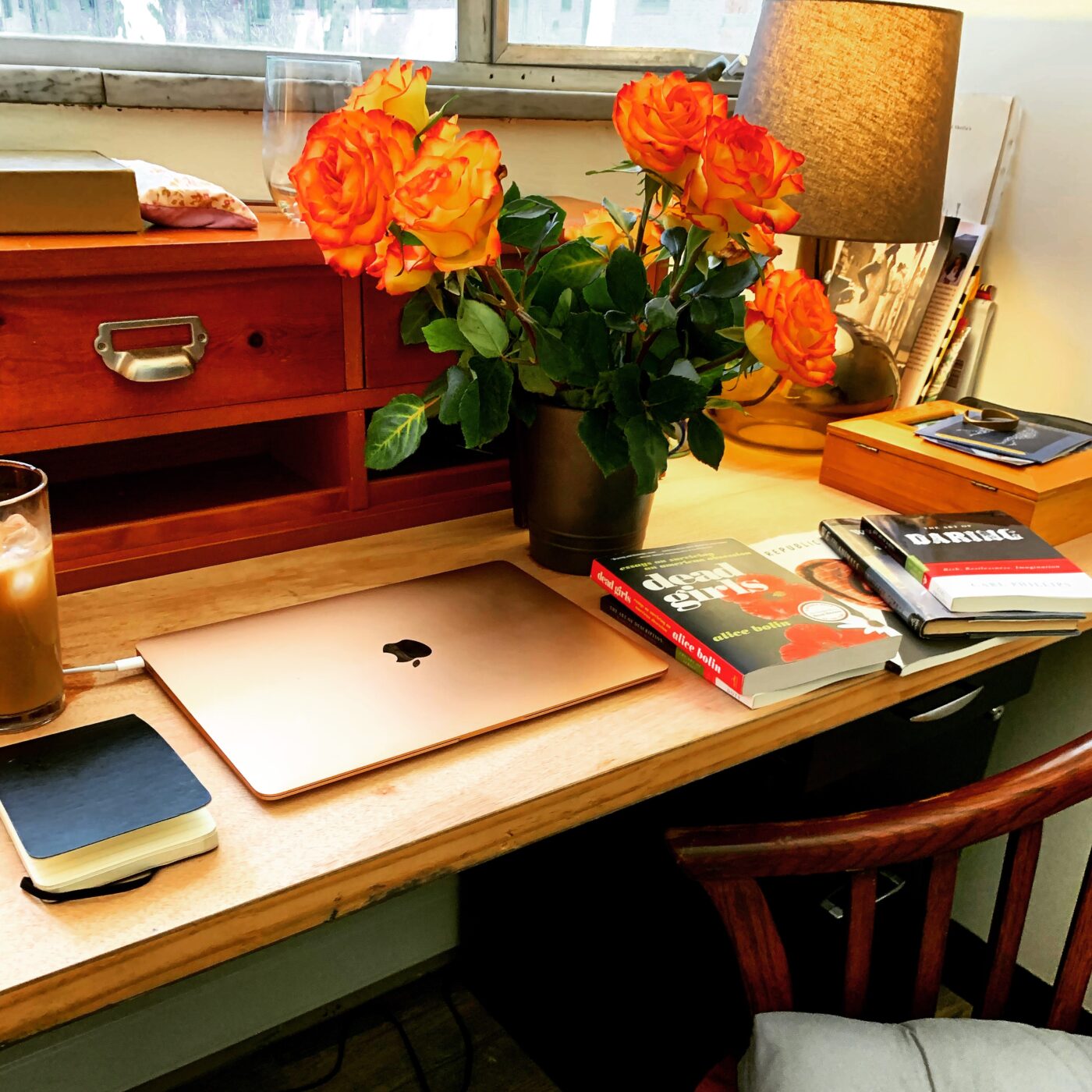Stranger

“There is nothing new under the sun, but there are new suns.”
—
Octavia
E. Butler

4–5 minute read, or the time it takes to wrap a present.
The people we love are often far from us, on the other side of the country, walled off physically or emotionally. Perhaps we haven’t even met them yet. But in the act of writing a few words on a paper, typing them on a phone or computer, a fleeting moment of connection begins, if we’re lucky, even sustains. In this letter to an unknown recipient, or to you, reading this passage, Molly McCully Brown demonstrates the power of the written word and the power of address to put one body in contact with another through the exchange of visions, ideas, emotions.
Have you ever noticed that places always get most beautiful just as you prepare to leave them? Outside the streaked picture window of my boxed-up apartment, Ohio — landlocked, flat, scrub-gray, and long-wintered — is suddenly blooming. Shamelessly ballooning azaleas and all this green you can see for miles because the land never rises: field after field after field. I’m packing for a move to my eighth city of the last thirteen years (or maybe my eleventh, depending on how long you think you have to stay someplace in order to have lived there).
I’m a professional leaver, the anywhere-but-here-girl: Good at starting over from scratch. Put your keys on the counter, catch a cab to the airport, shoulder your bag, and turn your eyes ahead. I get mail months late, rerouted from Arkansas, Mississippi, Texas, and regular virtual coupons for a London hair salon. My phone reports a wild variety of weather from all the places I’ve lived, and still sometimes reverts to West Coast time, like it’s remembering something. I miss landscapes, noises, food, and neighborhood corners from towns all over the world, but I don’t belong to any of them. And, if I’m being honest, there’s been something comforting in the pattern. Every place I am a layover, every version of myself a traveler, counting at least a little on the knowledge that none of it counts, because nothing is real in an airport where you’re only passing through: calories, or money, or flirting, or fear. But, for the first time in my adult life, I have no plans to leave the place I’m going next.

[ID: Photo taken from inside an airplane looking out through a raindrop-spattered window onto the tarmac. There is a small vehicle in the foreground and a RyanAir plane and light beacon in the distance.]
I’ve been thinking that if the evolving geography of my life has made me into a leaver, then language — letters, words on the page and in the air — has been the thing that taught me what it means to hold fast and hold steady, to stay.
My first instinct was to tell you that this lifetime of leaving has me worried I don’t know how to build anything lasting or real. And it’s true that I don’t know exactly how to have the kind of life where I know where all my clothes are, where I’m familiar to the people immediately around me, where I have an easy answer when someone asks where home is. But I’ve been thinking, lately, of everyone I love, in all the places I’ve lived and beyond: this improbable network of kin and beloved that has swelled and hung on as I’ve crossed and re-crossed the country, persisted across oceans and decades and all those traveling and traveled versions of myself. And I’ve been thinking that if the evolving geography of my life has made me into a leaver, then language — letters, words on the page and in the air — has been the thing that taught me what it means to hold fast and hold steady, to stay.
In body, I am almost always far from the people I love most. But in language, I’m in the coffee shop in upstate New York where my best friend from graduate school is scribbling a card, spilling her peppermint latte, and adding a note in the margin by the stain to let me know about the pop song they started playing that made her laugh hard enough to knock the cup over.
In language, I’m in the dark of my nephew’s room with my sister in Oregon, where it’s 1 am, and she isn’t sleeping, and is texting me about the rain.
In language, I can follow an old friend across fourteen years of long emails, and cramped apartments in Texas, New Mexico, New York. I know about the moths and lizards on her windows, the men she loves, the poems she’s worrying over, and the way the light looks.
In language, my dearest friend and I wrote a whole book together, imagining a world that was made for our particular bodies as we lived in this imperfect world miles and miles apart. And, in language, she leaves a voicemail about her daughter, my goddaughter, who learned to crawl last week 600 miles away, but is rendered in my empty living room, dragging her left knee slightly behind her right.
In language, I’ve come to love people. Told them about the improbably huge gulls rooting through the garbage on the streets of Cardiff, and the cramped interiors of Italian hotels, about sorrow, and salt, and the way a wound can refuse to close. About hysterical laughter and Spanish Moss. I have carried people with me, and been where they are, and held them close. We have known one another, stayed by one another’s side.

[ID: Photo of a desk with a closed laptop, a stack of books, a notepad, and a vase of orange roses, a small lamp, and various other ephemera.]
And that’s where this letter comes in: Whoever you are, you know, now, what I’m worrying over. What I’m occupied by. What it looks like outside my window. You know that one colossal roll of bubble wrap still wasn’t enough to pack all my pictures. We are a little less like strangers, a little more like kin.
If you ever alight where I’ve landed, remind me about the azaleas, tell me about yourself; there’ll be a place for you to rest wherever I am.
Yours,
Molly

[Molly, a white woman with long, wavy hair, looks at the camera.]
Molly McCully Brown
She // Her // Hers
Norfolk, VA
Molly McCully Brown is the author of the essay collection Places I’ve Taken My Body (Persea Books, 2020) and the poetry collection The Virginia State Colony for Epileptics and Feebleminded (Persea Books, 2017). With Susannah Nevison, she is also the co-author of the poetry collection In the Field Between Us (Persea Books, 2020). Her work is invested in literature’s capacity to serve as a social and emotional accounting and to illuminate the fissures and falsehoods in the received historical record. Across forms and genres, her practice is rooted in understanding not only the land and the built environment, but the body itself, as a place: a country we carry with us, with porous and mutable borders. A 2018 United States Artists Fellow, her work has appeared in The Paris Review, The Yale Review, Virginia Quarterly Review, Tin House, The Guardian, The New York Times, and elsewhere. She is an Assistant Professor of English and Creative Nonfiction at Old Dominion University.
